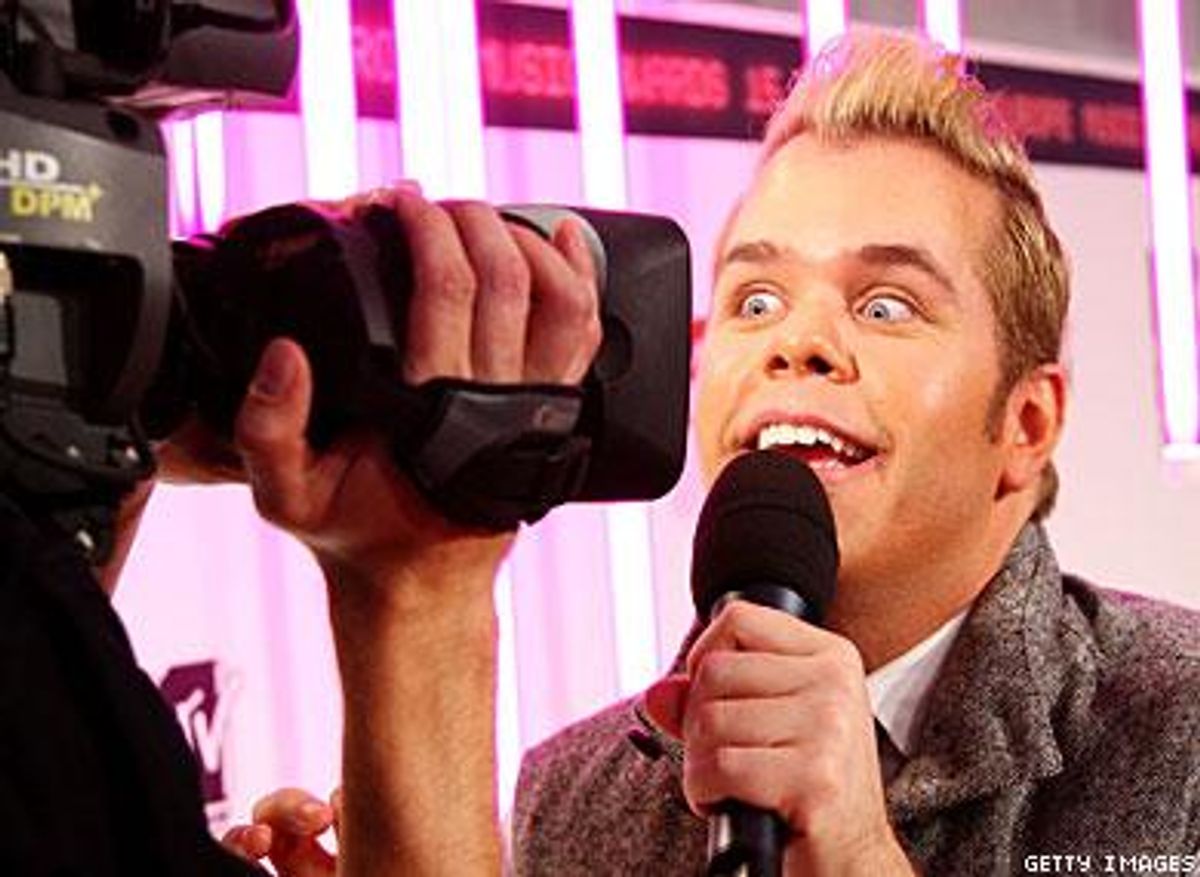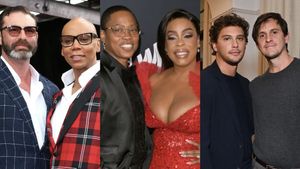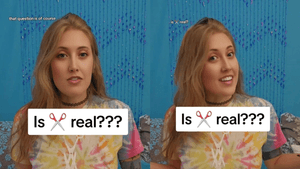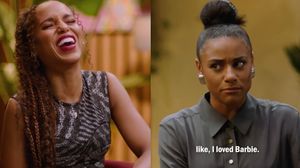The latest scandal involving flamboyant celebrity blogger Perez Hilton presents us with as good an opportunity as any to ask a question that gays have long been reluctant to broach: Namely, how has this half-literate typist been elevated from his day job of spewing Internet hatred to become one of the most prominent gay people in the country -- and the national face of a civil rights movement, no less?
A brief recap for those with better things to do than follow the every move of this attention-starved gossipmonger: At an after-party for the MuchMusic Awards in Toronto last month, Hilton -- a.k.a Mario Lavandeira -- called Black Eyed Peas front man will.i.am a "faggot." The singer was angry over Hilton's unflattering coverage of the band, which, given the popularity of PerezHilton.com (reported to have 14 million readers a month), has the ability to inflict a not insignificant amount of reputational damage. (Lavandeira's "reporting," if one can call it that, runs the gamut from drawing graffiti penises to drawing graffiti semen stains on paparazzi photographs of celebrities -- photographs he's been sued for stealing in the past). In response to Lavandeira's slur, the band's manager allegedly slugged the "Queen of all media" in the face, leaving him with a black eye.
In a seven-minute video "statement" that the CIA should consider forcing terrorist detainees to watch as an alternative to waterboarding, Lavandeira regales his legions of viewers with an account of the fisticuffs, crying for the duration like a petulant adolescent girl. The video could be used as a recruitment tape for homophobes; no actor could better portray the mincing, whiny, and catty homosexual stereotype that Lavandeira embodies. His teary rant is perfectly complemented by a revealing profile in this month's Advocate that shows Lavandeira to be equal parts vapid, dishonest, hypocritical, and as the author of the piece, Benoit Denizet-Lewis, writes, "not a deep or nuanced thinker," evident in that Lavandeira would actually say something like "Violence is never the answer."
And then there's this poetic gem: "Blood should never be drawn; another person should never be hit. That's why people die." (It does not come as a surprise that Lavandeira reads "no books.") No less a talent than Lady Gaga refers to him as "the ultimate tastemaker in popular culture right now," but such acclaim is akin to being praised by Arianna Huffington for intellectual consistency.
What makes Lavandeira's escapades more significant than a run-of-the-mill feud between two celebrities with massive egos is his recent emergence as a spokesman for gay equality. He was catapulted into this position in April, after his participation as a judge at the annual Miss USA pageant in Las Vegas. There, Lavandeira asked Carrie Prejean -- known now and forever as Miss California -- whether or not she supported gay marriage.
Prejean's answer was hardly the stuff of controversy, or at least it ought not to have been. She began by praising the democratic process by which several states legalized same-sex unions. "I think it's great that Americans are able to choose one way or the other," she said. "We live in a land that you can choose same-sex marriage or opposite marriage." Prejean then registered her personal opposition to gay marriage, explaining that "in my family I think that I believe that a marriage should be between a man and a woman, no offense to anybody there. But that's how I was raised and that's how I think it should be, between a man and a woman."
This rejection of gay marriage, however bloodlessly worded, was unacceptable to Lavandeira, who quickly proceeded to make a video in which he called Prejean a "dumb bitch" and other, unprintable things. Asked about his vitriolic response, Lavandeira later rationalized it by stating that Prejean's "answer alienated millions of gay and lesbian Americans, their families, and their supporters," completely oblivious to the fact that his calling her a "dumb bitch" might "alienate" the millions of Americans -- the majority of Americans, in fact -- who oppose gay marriage. (Here it is also worth noting that it's not just heterosexual beauty queens whose public image this purported advocate for gay rights has tried to destroy but those who actually contribute something to the gay movement. Last month Lavandeira published explicit sexual photographs of Dustin Lance Black, in which the Milk screenwriter appeared to be having unprotected intercourse).
To be sure, Prejean proved herself to be no shrinking violet and no less guilty of the charge of sensationalism than her accuser. Since her spat with Lavandeira, she has happily allowed herself to be used by opportunistic anti-gay marriage activists like Maggie Gallagher as a national symbol of the supposed "gay and secular fascism" that is sweeping the country and shutting up God-fearing Americans, in the choice words of former House speaker Newt Gingrich. But Prejean's behavior in the months since Lavandeira seized upon her does not excuse her original slandering, nor the way in which many gays seemed to take pleasure in her downfall.
Indeed, the rage that Lavandeira expressed toward Prejean was hardly an isolated incident; it was characteristic of the tenor of many gay writers and activists in the aftermath of Proposition 8's passage. The vitriolic rhetoric expressed then and still today toward those who supported the measure is an issue that many gay people would rather not confront, and it's to our detriment that this nasty tone is slowly taking over the movement. When you portray anyone who disagrees with you as a "hater" -- and what other conclusion can be drawn from a campaign that adopted "No H8" as a slogan -- it becomes much easier to demonize one's opposition. Anything goes when the person opposing you is a "bigot" a la the Ku Klux Klan. In this way many gays mimic the behavior of their worst enemies, who for decades have tried to portray us as sick and depraved threats to society.
To be sure, there are many people who oppose gay marriage for whom the term "hater" is appropriate. Pat Robertson and the late Jerry Falwell come to mind. But there are many people who voted for Proposition 8 who did so not because of an irrational fear or hatred of homosexuals -- the literal definition of homophobia -- but because they believe that an important societal institution that, at least in this country, has been reserved exclusively for opposite-sex couples should remain that way. Some believe that gays ought to have the same legal rights as straight couples but that the word marriage should be reserved for heterosexuals. These arguments may be silly, contrived, and wrong -- and I believe they are -- but they are not inspired by "hatred." And whatever the distinctions -- or lack thereof -- between bigoted and more intellectual opposition to gay marriage, certainly we can agree that, from a purely tactical standpoint, calling the majority of Californians who voted for Proposition 8 "haters" is not a winning political strategy?
But the anti-Proposition 8 cause in California shows no signs of having learned this lesson. At the time Denizet-Lewis was reporting his profile, Lavandeira was in the process of filming a public service announcement in favor of gay marriage. Presumably, after calling will.i.am a "faggot" (which earned him a reprimand from the Gay and Lesbian Alliance Against Defamation), the invitations from gay rights organizations have slowed to a trickle, if not come to a full stop. But it's telling that some gay leaders thought it would be a good idea -- especially in the aftermath of the Miss California incident -- to have him star in an advertisement promoting marriage equality.
"I don't really believe everything I write," Lavendeira admits. Such an openly dishonest man has no place promoting a cause that relies on facts and reason to persuade people of its ultimate moral goodness.
For too long, Lavandeira has been allowed to get away with his vulgar shtick, aided and abetted by a media and readership that lives in fear of his poison mouse and delights in his catty sniping. It should not have taken a punch in the face to make people realize his noxious influence on our culture.
After all, violence isn't the answer.


















































































